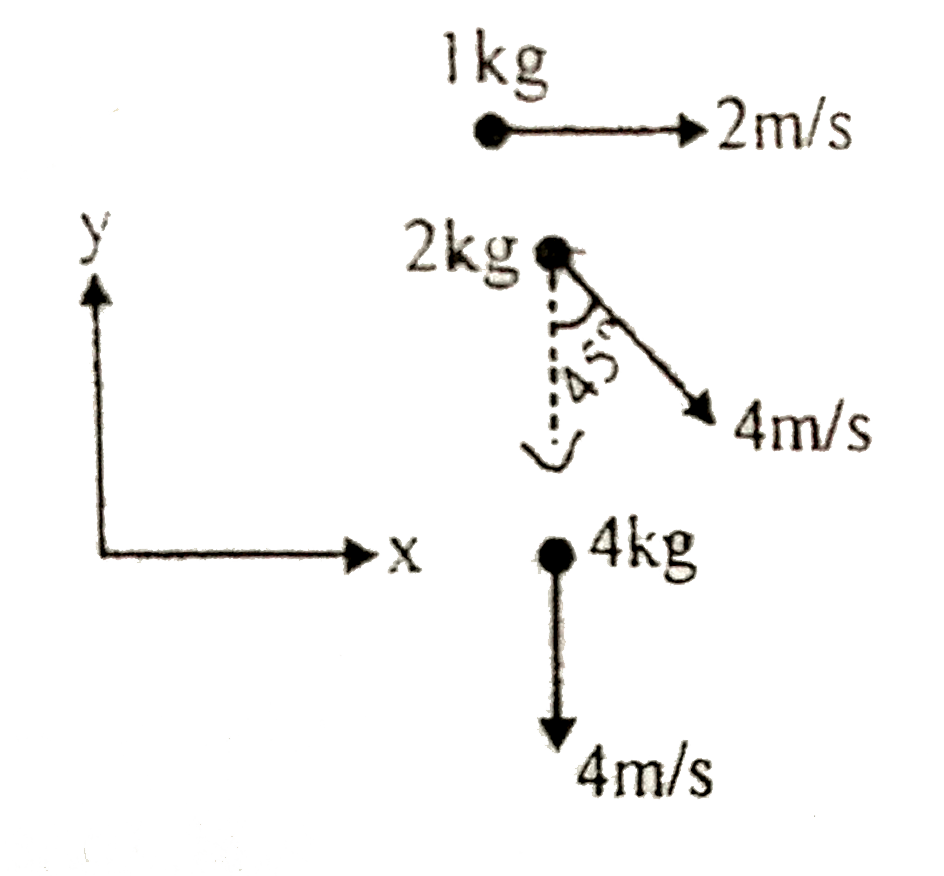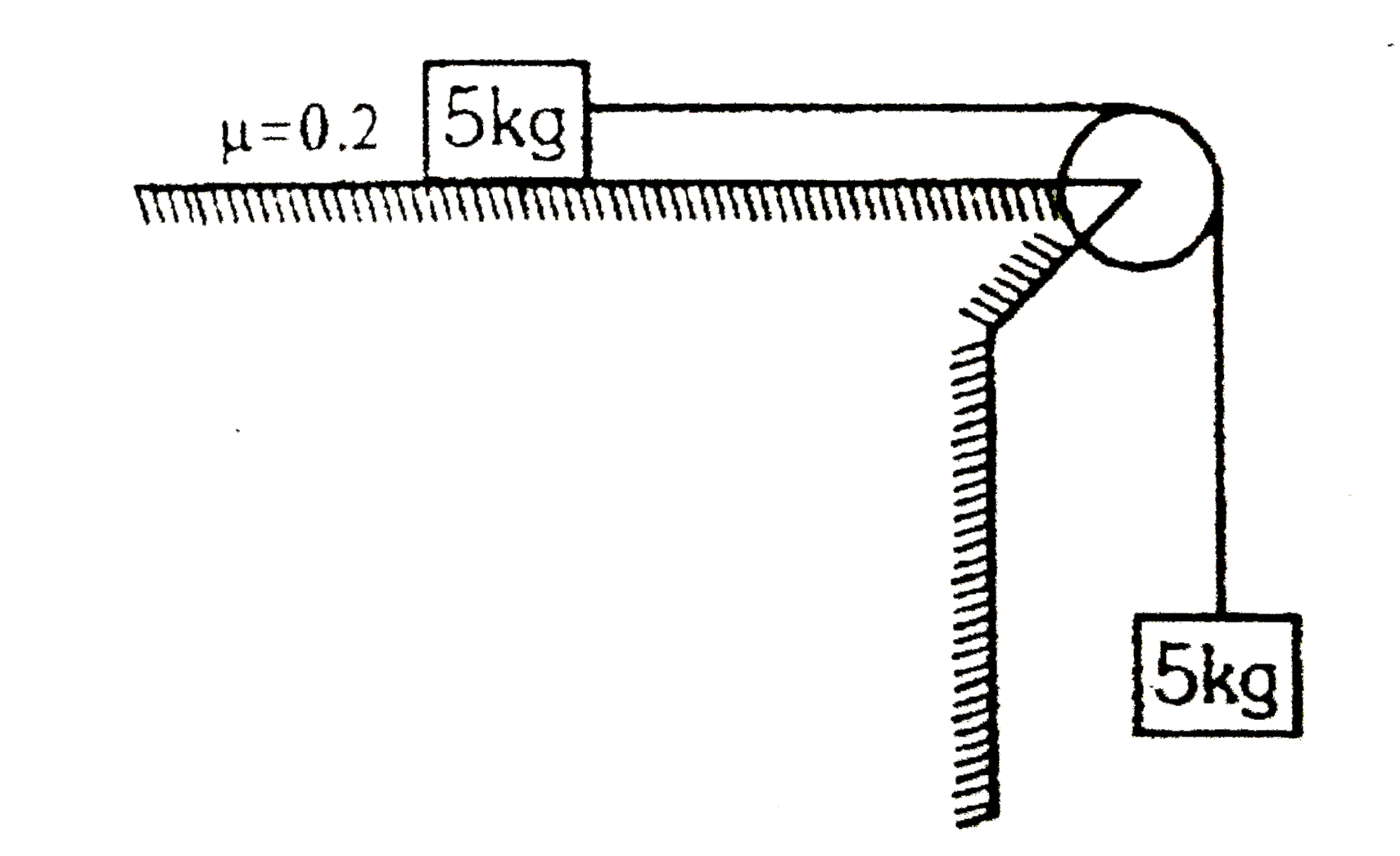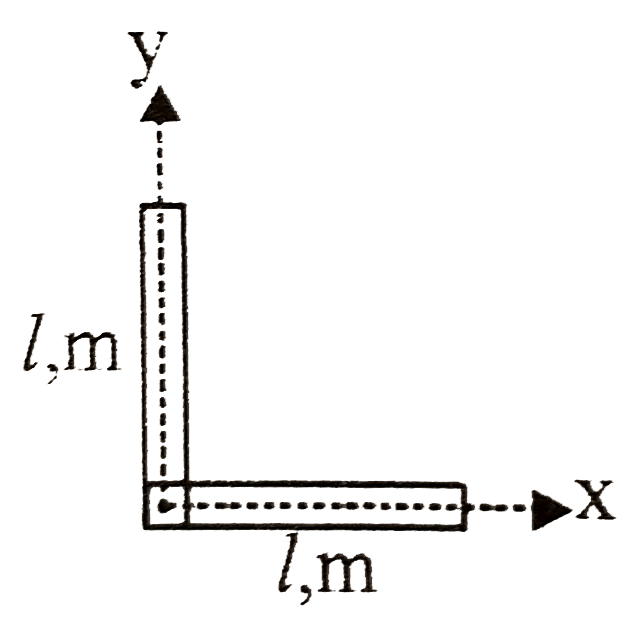The velocity of centre of mass of the system remains constant, if the total external force acting on the system is.
minimum
maximum
unity
zero
The correct Answer is:D
When the total external force acting on the system is zero, the velocity of center of mass remains constant.
Topper's Solved these Questions
- BOOK - NCERT FINGERTIPSCHAPTER - SYSTEM OF PARTICLES AND ROTATIONAL MOTIONSEXERCISE - Torque And Angular Momentum11videos
SYSTEM OF PARTICLES AND ROTATIONAL MOTIONS
- BOOK - NCERT FINGERTIPSCHAPTER - SYSTEM OF PARTICLES AND ROTATIONAL MOTIONSEXERCISE - Equilibrium Of A Rigid Body13videos
SYSTEM OF PARTICLES AND ROTATIONAL MOTIONS
- BOOK - NCERT FINGERTIPSCHAPTER - SYSTEM OF PARTICLES AND ROTATIONAL MOTIONSEXERCISE - Centre Of Mass8videos
SYSTEM OF PARTICLES AND ROTATIONAL MOTIONS
- BOOK - NCERT FINGERTIPSCHAPTER - PRACTICE PAPERSEXERCISE - Practice Paper 350videos
PRACTICE PAPERS
- BOOK - NCERT FINGERTIPSCHAPTER - THERMAL PROPERTIES OF MATTEREXERCISE - Assertion And Reason10videos
THERMAL PROPERTIES OF MATTER
Similar Questions
Knowledge Check
- Question 1 - Select One
If no external force acts on a system
A(a) velocity of centre of mass remains constantB(b) position of centre of mass remains constantC(c) acceleration of centre of mass remains non-zero and constantD(d) All of the above - Question 2 - Select One
If net external force acting on the system is zero then
AVelocity of the individual particle of the system will remain constantBVelocity of the center of mass of the system will remain constantCVelocity of the center of mass of the system will be zeroDVelocity of the individual particle of the system will be zero - Question 3 - Select One
The velocity (in m/s) of centre of mass of the system as shown in the figure is :
 A2[1+4√2]ˆi+8[1√2+2]ˆj7B2[1+4√2]ˆi+8[1√2−2]ˆj7C2[1+4√2]ˆi−8[1√2+2]ˆj7D8[1√2−2]ˆi+2[1+4√2ˆj]7
A2[1+4√2]ˆi+8[1√2+2]ˆj7B2[1+4√2]ˆi+8[1√2−2]ˆj7C2[1+4√2]ˆi−8[1√2+2]ˆj7D8[1√2−2]ˆi+2[1+4√2ˆj]7
Will the momentum remain conserved if some external force acts on the system ?
View SolutionVelocity Of Centre Of Mass Of System
View SolutionThe concept of centre of mass proves that laws of mechanics which are true for a point mass, are equally valid for all macroscopic bodies of any shape, size, mass, etc. For example, when vector sum of external forces acting on a system of particles is zero, the velocity of centre of mass of the system will remain constant.
Read the above passage and answer the following questions :
(i) Is centre of mass of a body a real point ?
(ii) Does centre of mass lie within the body always ?
(iii) How do you justify that −−→vcm= constant ?View SolutionA system consists of two particles. At t=0, one particle is at the origin, the other, which has a mass of 0.60kg, is on the y-axis at y=80m. At t=0, the centre of mass of the system is on the y−aξs at y=24m and has a velocity given by (6.0m/s3)t2ˆj.
(a) Find the total mass of the system.
(b) Find the acceleration of the centre of mass at any time t.
(c) Find the next external force acting on the system at t=3.0s.View SolutionThe magnitude of acceleration of centre of mass of the system is
 View Solution
View Solution


